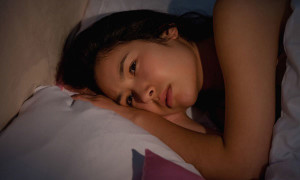Managing insomnia without medication
If you are tired of feeling tired all the time, you’re not alone. Insomnia—one of the most common patient complaints—affects 70% of all Americans. While patients with insomnia may respond well to various sedatives and medications, non-drug strategies can also be helpful.
“Changing your nighttime ritual can be used alone or in conjunction with medications to improve sleep.”
According to R. Gregory Lande, DO, a board-certified psychiatrist from Bethesda, Maryland, insomnia is considered a persistent condition because it is subject to frequent recurrences.
“Women, older adults and people with physical or emotional difficulties tend to suffer most from insomnia,” says Dr. Lande.
Some of the impairments that can be attributed to poor sleep include:
- Chronic fatigue
- Inattention
- Irritability
- Diminished productivity and absenteeism on the job or at school
- Emotional problems
- More frequent health complaints
- Weight gain
- Increased alcohol usage
- Accidents
Seeing Your Doctor
According to Dr. Lande, the best place to start if you’re dealing with a sleeping problem is to schedule an appointment with your physician.
“During the examination, the physician will try to identify the extent of a person’s sleeping problem,” says Dr. Lande. “For instance, sleep may be delayed because of excessive worrying, or interrupted because of nightmares or snoring.”
In addition, the physician will inquire about a patient’s behaviors just prior to going to bed, such as using electronic devices, eating a meal, consuming alcohol or caffeine, or exercising.
Dr. Lande adds that osteopathic physicians (DOs) are particularly adept at evaluating lifestyle and environmental factors that may be contributing to a sleeping problem.
5 Ways to Treat Insomnia
While medications can be prescribed to improve sleep, there are many benefits to nonprescription treatment options.
“Changes in behavior or nighttime rituals are simple, cost-effective methods that can be used alone or in conjunction with medications to improve a patient’s sleep,” Dr. Lande says.
Five ways to treat insomnia without medicine:
- Sleep hygiene—Applying the basic tenets of sleep hygiene, such as developing a sleep ritual to make the transition from regular activity to sleep, can increase one’s total sleep time and improve sleep efficiency. For example, with a worry journal—a special diary used to record the trials and tribulations of the day along with possible solutions—people who tend to rehash their worries at night can write them down and then literally close the book on their troubles until morning.
- Sleep diary—Use this to keep track of when you go to bed and when you wake up. It can also be used to note when you wake up during sleep and how long you stayed up. Plus, you can mark down when you exercise, drink a caffeinated or alcoholic beverage or take medication.
- Stimulus control—Any number of activities can be incompatible with getting a good night’s sleep, from watching TV to playing a game on an iPad or smartphone. The light emitted from these devices lowers the levels of melatonin, a hormone that induces sleep. The goal of stimulus control is to break bad habits and to behaviorally associate the bedroom with sleep. “If people can’t fall asleep, they should leave their bed to pursue a non-stimulating activity and only return to bed when fatigue returns,” Dr. Lande says.
- Sleep restriction—Sleep efficiency is the relationship between the time spent actually sleeping versus the time spent in bed. The goal of sleep restriction is to methodically reduce the amount of inefficient time in bed. “Sleep restriction can be difficult to apply, in part due to an erroneous belief that equates greater amount of time spent in bed with higher quality of sleep,” Dr. Lande says.
- Cognitive treatment—Cognitive behavioral treatments for insomnia work through the identification of faulty thoughts that interfere with sleep. Through cognitive therapy, patients learn how to eliminate intrusive thoughts that impede sleep.
